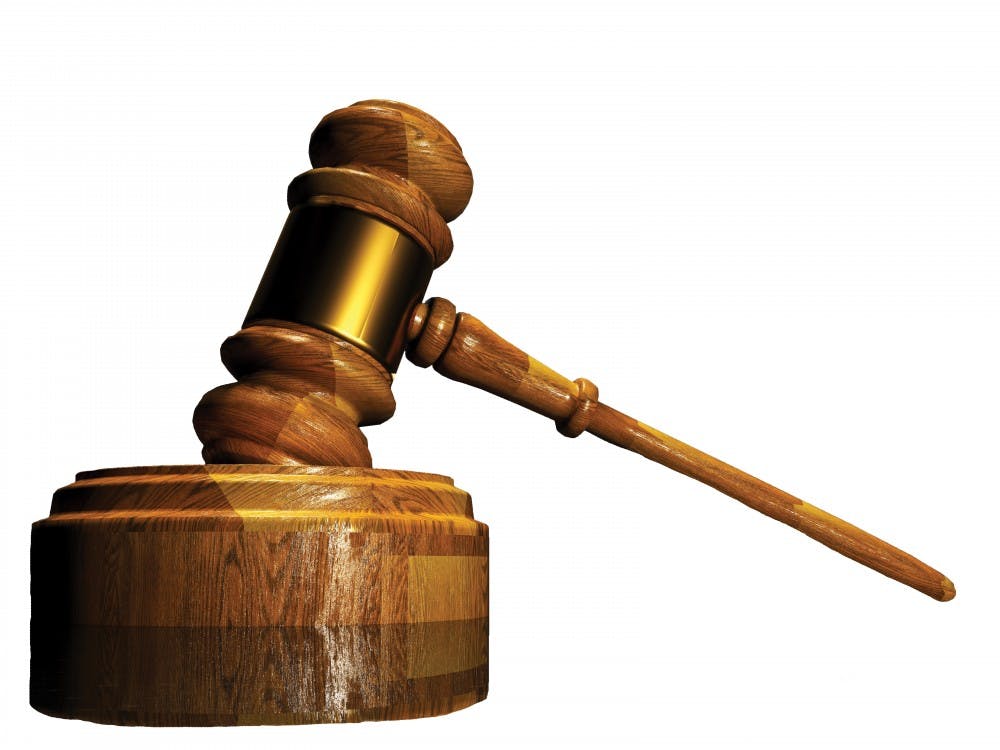EDITORIAL: Why banning straight-ticket voting is unconstitutional
Three federal courts block state ban on ‘straight-ticket voting,’ for now
In January, Gov. Rick Snyder signed a bill banning a popular voting option that allows citizens to cast full ballots along party lines — a move now deemed unconstitutional by three major federal courts.
Legislators refer to the option as “straight-ticket” voting. Michigan is one of only 10 states to use this option on statewide ballots.
The ban would throw out the straight-ticket option before the Nov. 8 election. Voting with a straight ticket means you vote for every Democratic or Republican Party candidate by filling in one bubble at the beginning of each ballot.
Snyder said his goal was to create a more informed voter bloc, forcing people to research a full slate of candidates before showing up to the polls. He called it putting “people over politics.”
Though the ban passed with majority Republican support, its constitutionality was in question from the start.
Activists and opposing lawmakers argued the ban would place an extra undue burden on voters, particularly those who must wait in long lines to vote each election. They filed a lawsuit against the ban shortly thereafter.
In July, Judge Gershwin A. Drain of the Federal District Court in Detroit temporarily blocked the law from taking effect before Nov. 8. He called it discriminatory against African-American voters in districts like Detroit, which experience some of the longest voter wait times in the state’s.
Michigan Attorney General Bill Shuette kept appealing.
The three-judge panel from the U.S. Court of Appeals denied the state’s request to revive the law. Last month, the U.S. Supreme Court denied the same request in a brief.
We applaud the plaintiffs of the lawsuit and the three larger federal courts for blocking the ban ahead of the November election.
We agree with Snyder that voters should be aware of who and what issues they support with their ballots. We do not believe banning straight-ticket voting options achieve that goal.
Discrimination was a major point of contention for each of the justices involved. In his initial ruling, Drain cited data showing a disproportionate number of African-Americans used straight-ticket voting in the last general election.
We can easily argue the same, but the implications of the ban are broader. They would affect more people than just African-Americans in places like Detroit.
Filling out a full ballot is time-consuming. Doing so would indisputably create longer lines at polling locations. Longer lines typically deter voters from showing up to the polls. Staying put once they arrive becomes harder as the lines grow longer.
This is especially true for working people and younger voters. In both cases, job and school obligations are difficult to avoid.
It is also unrealistic for the legislature to assume all college students and working people with families have time to research candidates before Election Day. Voting should be quick, easy and without unnecessary roadblocks.
Three different sets of federal court judges and justices understood the implications and stopped just short of overturning the ban. That’s the good news.
The bad news is the ban still exists once the courts lift their injunctions after Election Day. Michigan’s legislature has yet another chance at reviving it in its next session.
We call on the Michigan legislature to dismantle the ban in its entirety.
At present, State Rep. Jon Hoadley proposed legislation to repeal the ban. We call on all representatives in the State House to join his push for a repeal.
We can debate whether Snyder and his allies were working to cover their electoral losses or to create well-informed voters.
The truth is that any attack on the ease of voting is an attack on civil liberty. Any attempt to revive the ban again is an attack on the voting rights of ordinary Michigan citizens.
If lawmakers choose to make voting more difficult, they should do us — the voters — the courtesy of making Election Day a statewide holiday.
If our politicians are so deeply concerned about voter awareness, they should refocus their energy on campaigns fueled by facts, instead of vitriol and divisive rhetoric.
We both might learn something about the nature of our democracy in the process — something a straight-ticket ban would never accomplish.







